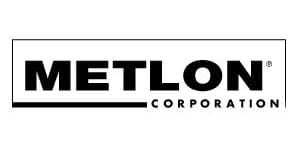The Textile Rental Services Association of America (TRSA) is alerting industrial and healthcare users of textile services that marketers of disposable products are intensifying their frivolous claims about the hygiene of cloth reusable goods. TRSA is countering these statements but the association warns that all businesses that manufacture, launder or deploy laundered textiles must defend against these campaigns that without substantiation challenge the cleanliness and economy of commercial laundry, a service grounded in natural resource conservation and sustainability.
Chief among these campaigns is an effort to push disposable paper industrial wipers as substitutes for reusable cloth shop towels. In a July 11 article in the Huffington Post, a Kimberly-Clark scientist likens their users’ lack of awareness of the presence of trace metals in these items (not adequately proven) to that of smokers in the 1940s and 1950s who had “no realistic association between cigarettes and illness.”
The disposable products industry strategy is simply to use baseless assumptions to strike fear and create doubt among textile services customers and leverage self-funded research to encourage increased regulation.
A new study by the Association of the Nonwovens Industry (INDA) on such traces prompted the article, which reported detailed findings and quoted the researchers. But TRSA’s comments were included as well. Kevin D. Schwalb, TRSA government affairs director, observed, “Hundreds of millions of shop towels have been used by millions of employees for more than 100 years and we have never heard of any health issues related to their use.” Schwalb also noted:
• The relatively small number of towels sampled
• The study was not published in a peer-reviewed journal
• No indication that residual materials have ever been transferred to a human or ingested
INDA has also begun to attack reusable healthcare textiles, using terminology in its communications such as “gown failure liability and risk” and “laundry mistakes posing risks.” But this same association has helped fund research that highlights the cost and sustainability advantages of reusable textiles.
TRSA President Joseph Ricci noted that campaigns that attack reusables may be groundless but they still garner attention and prompt misconceptions. “The hygienic and economic benefits of using laundered goods have long been realized by manufacturing and service industries but have rarely been publicized. Marketers of disposables cannot deliver these same attributes so they are determined to spend whatever money is necessary to discredit reusables instead.
“Their recent campaigns are a wake-up call to all of us who can attest to how commercial laundries provide businesses with optimal just-in-time inventories of clean reusable textiles such as uniforms, linens and towels at a fair price. Now more than ever, we need our own research and increased resources to tell our own positive stories.”
He urged commercial laundry customers to be especially attentive and responsive to efforts to document the quality and economy of the reusable textile services they have received.
All textile services companies, he said, must appreciate that only TRSA can provide the necessary defense for the entire industry. “We value our relationships with other groups serving our industry and we continue to coordinate projects with them,” he said, noting that each has a specific charge that differs from TRSA’s. For marketing and sales support at local and regional companies, these include CSC Network and the Independent Textile Rental Association; for regional networking, the Western Textile Services Association, Midwest Textile Services Association and New England Laundry Association.
“It is critical that companies who participate in these groups but are not affiliated with TRSA become TRSA members,” Ricci explained. “These other organizations are not chartered to handle the national advocacy work these companies need to preserve their product lines. This requires a balanced membership of independent operators and national companies to represent the industry and resources – volunteer leaders and money.”
“Disposables manufacturers and distributors are united in their efforts to fund research and government outreach to erode our industry’s competitive edge,” said Ricci, “To defend ourselves and hold onto all of our business, textile services operators best do the same. TRSA is the only organization that can accomplish this but cannot do so without the entire industry behind it. We are Stronger Together!”
About the Textile Rental Services Association of America
Based in Alexandria, Va., TRSA represents the $16-billion textile services industry that employs nearly 200,000 people at more than 2,000 facilities nationwide. These companies provide laundered textiles and other products and services that help businesses project a clean and attractive public image. The industry reaches every major business and industrial region, Congressional district and city in the country. Most Americans benefit at least once a week from the cleanliness and safety provided by the industry—through its laundering and delivery of reusable linens, uniforms, towels, mats and other products for the healthcare, hospitality and industrial/manufacturing sectors.
TRSA member companies’ services minimize environmental impacts on air, water and solid waste disposal while reducing costs for millions of customers. Member facilities use high-capacity, high-speed laundry equipment to achieve tremendous efficiencies in the use of utilities and chemistry. TRSA guides members in continuous improvement in this respect, sparking new environmentally friendly business practices. Our LaundryESP program has proven that per pound of laundry processed, TRSA members have in the last decade:
• Reduced CO2 emissions 20%, the equivalent of taking 300,000 cars off the road.
• Decreased energy consumption 18%, saving 6.2 trillion BTUs, akin to powering 450,000 homes for a year.
• Used 28% less water, translating to 26 million gallons, same as the domestic supply needed for 700,000 people a year.












